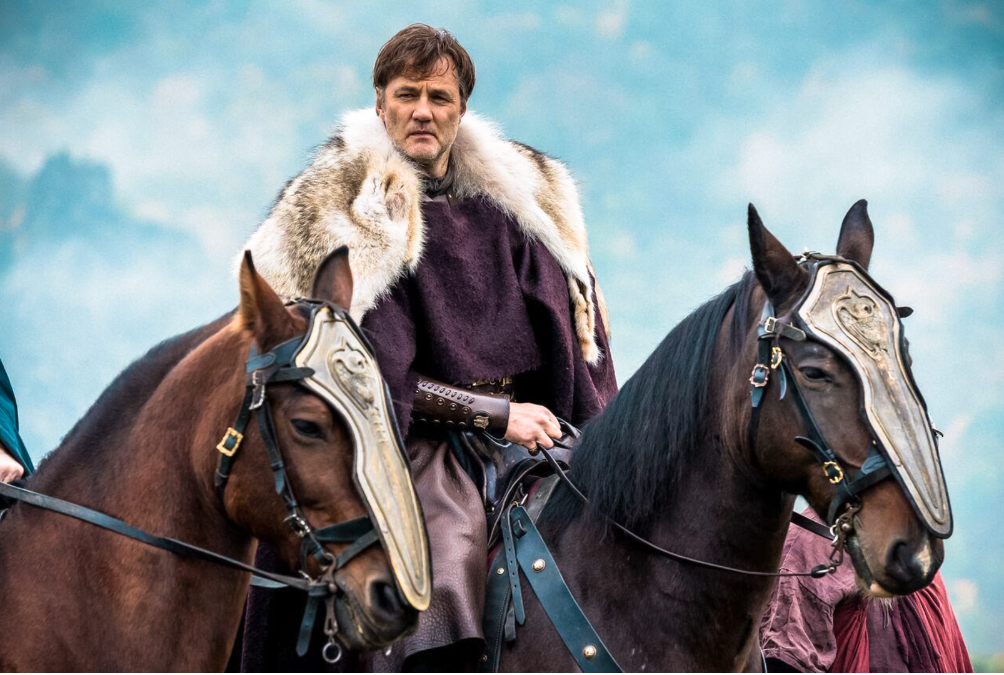
Tony Keen
The world of ancient Rome continues to be a source of fascination for cinema and television. As I write, Gladiator 2 is slated for a November 2024 release, whilst the second season of Domina, telling the story of Livia, wife of the first Roman emperor, has just premiered on UK television. These productions garner much attention. A little less discussed are movies and television series set in the Roman province of Britannia. But such productions have been made for nearly a century now, beginning with Boadicea in 1927, and that is what my new course for MANCENT is all about.
The story of Roman Britain is one told through a few key moments. A particularly popular one is Julius Caesar’s invasion of Britain, often (wrongly) seen as the point at which Britain became a Roman province. Curiously, almost all treatments of Caesar’s invasion are comedies, of which Carry On Cleo (1964) is surely the best known. There are quite a few productions set in the reign of the British King Cunobelinus, who reigned in the wake of Caesar’s invasion; these are all adaptations of William Shakespeare’s Cymbeline.
Compared with Caesar’s raids, the invasion in 43 CE of the emperor Claudius, which actually imposed direct Roman rule, gets little coverage, though it is mentioned in I Claudius (1977), and is the basis for weird fantasy Britannia (2018—2021). Much more popular is the revolt of Queen Boudica (better known until recently as Boadicea). This is almost always treated seriously, and in quite a grem fashion, though the two treatments by Horrible Histories, once on television (2015) and once in cinema (2018) are exceptions.
The fate of the Ninth Legion and Hadrian’s Wall have often been linked, and so they are on screen, with such productions as Centurion (2010) and The Eagle (2011). Both can also be linked to a final ‘historical’ moment, the time of King Arthur. Though many Arthurian movies, such as Excalibur (1981), retain Malory’s setting of a quasi-medieval Anglocentric patriarchy, some seek to place him in the context of the end of Roman Britain; Guy Ritchie’s King Arthur: The Legend of the Sword (2017) is an example.
Certain motifs recur again and again across these productions: the weather is awful, with almost constant rain; Britain is a backwater in the Roman empire; its people are primitive compared to the sophisticated Romans; and there are Druids everywhere. What is interesting is that, where most movies and television shows give an American view of the Romans, productions about Roman Britain generally emerge from British writers, directors, and producers (or, in the case of two Asterix movies, French), and so we see Rome from a different perspective.
This course runs from 18 September to 27 November, with a break for 23 October. All sessions are two hours, and are recorded. You don’t have to be able to make the live sessions to get the recordings and can be booked here.
The picture is from Britannia (2018–2021) David Morrissey as Aulus Plautius, in search of some scenery to chew.
Britannia (2018–2021) David Morrissey as Aulus Plautius, in search of some scenery to chew.
Britannia (2018–2021) David Morrissey as Aulus Plautius, in search of some scenery to chew.
Britannia (2018–2021) David Morrissey as Aulus Plautius, in search of some scenery to chew.
Britannia (2018–2021) David Morrissey as Aulus Plautius, in search of some scenery to chew.